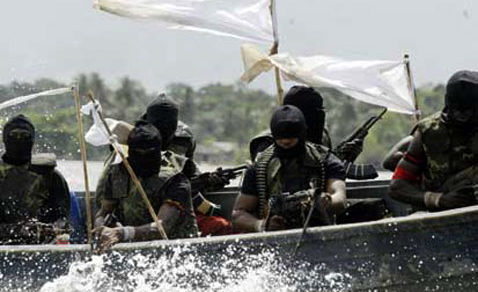Nigeria and shipowning bodies join forces to fight piracy

The government of Nigeria and a coalition of global shipping stakeholders have launched a new strategy to end piracy, armed robbery, and kidnapping in the Gulf of Guinea (GoG), one of the world’s most dangerous areas for merchant shipping.
The new strategy establishes a mechanism to periodically assess the effectiveness of country-piracy initiatives and commitments in the GoG. Targeted at all stakeholders operating in the region, it will identify areas of improvement and reinforcement in order to eliminate piracy.
The plan is split into two mutually supportive sections, actions which can be overseen by the Nigerian Industry Working Group (NIWG), and actions which require engagement with other regional and international partners. The strategic ambition of the coalition is to eliminate piracy in the GoG, to secure trade routes, reassure traversing crews, and support local communities.
In May, the UN Security Council condemned the GoG as the world’s piracy hotspot. Despite the International Maritime Bureau’s Piracy Reporting Center tracking an overall drop in global piracy during 2021, threat levels in the region remain high.
Piracy activity in the GoG has posed a severe threat to seafarers and local communities for over a decade. In 2020, 40% of piracy attacks, and 95% of crew kidnappings occurred in the region. However, attacks decreased by nearly 60% in 2021, following the establishment of Deep Blue, the Nigerian Navy and Nigerian Maritime Safety Agency (NIMASA) anti-piracy project, and increased international counter-piracy operations in the GoG.
The newly launched strategy was developed by the International Chamber of Shipping (ICS), BIMCO, Intertanko, Intercargo, Oil Companies International Marine Forum (OCIMF), and representatives of the Nigerian Navy and NIMASA, together making up the NIWG.
Bashir Jamoh, director general of NIMASA, said: “Working collaboratively with state and non-state actors, the maritime industry’s various critical players and stakeholders have highlighted key areas where they can make collective improvements. This strategy is an important step in codifying joint efforts to sustain maritime security in the Gulf of Guinea. It will be an important tool to monitor our progress.”
Katharina Stanzel, managing director of Intertanko, said: “The agreement on the Gulf of Guinea strategy marks a significant point in the fight against piracy and insecurity in this region. Seafarers have borne this burden for too long and this agreed strategy, with its associated KPIs will assist in making their time on ships in the area safer and more secure.”
